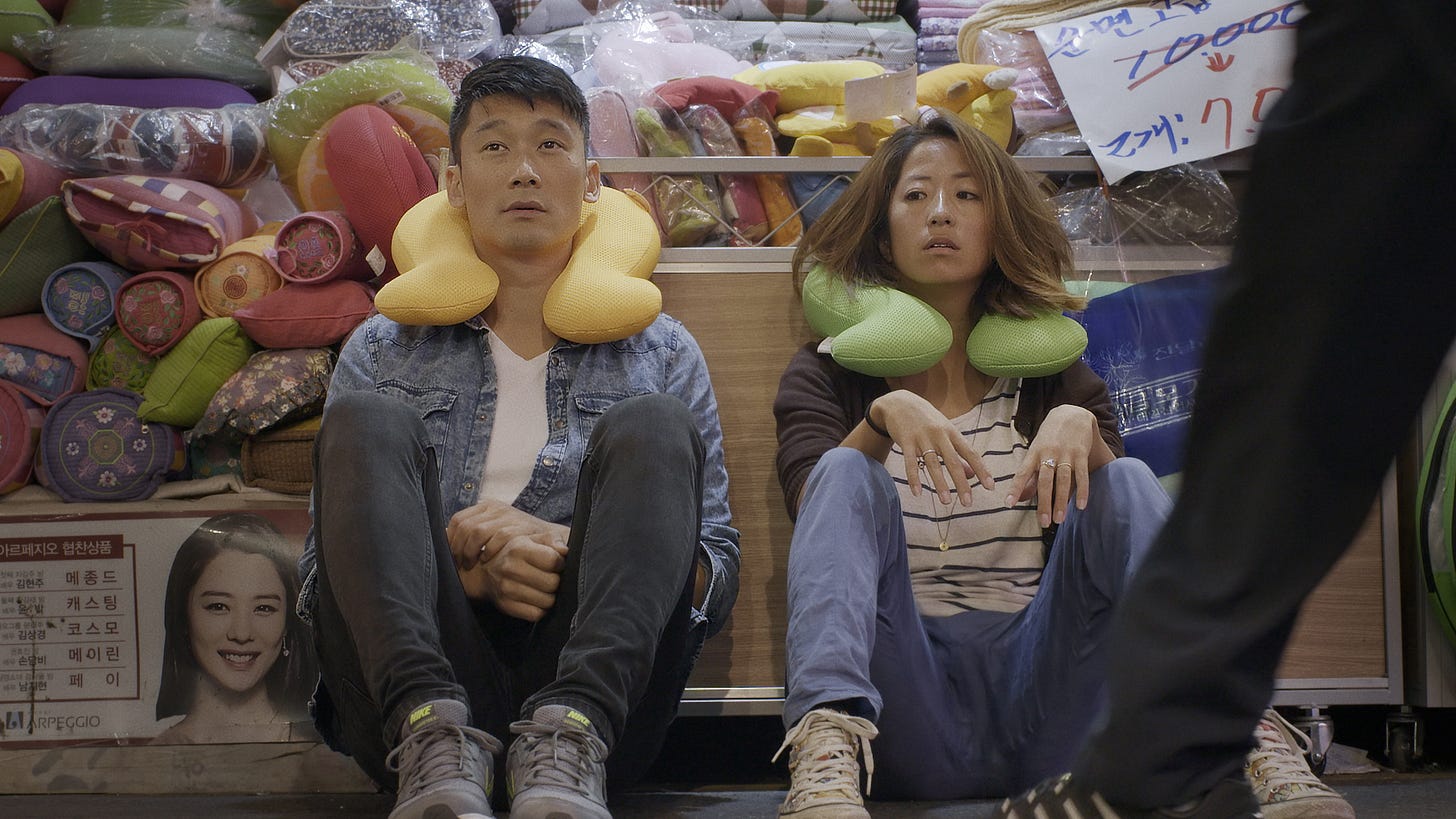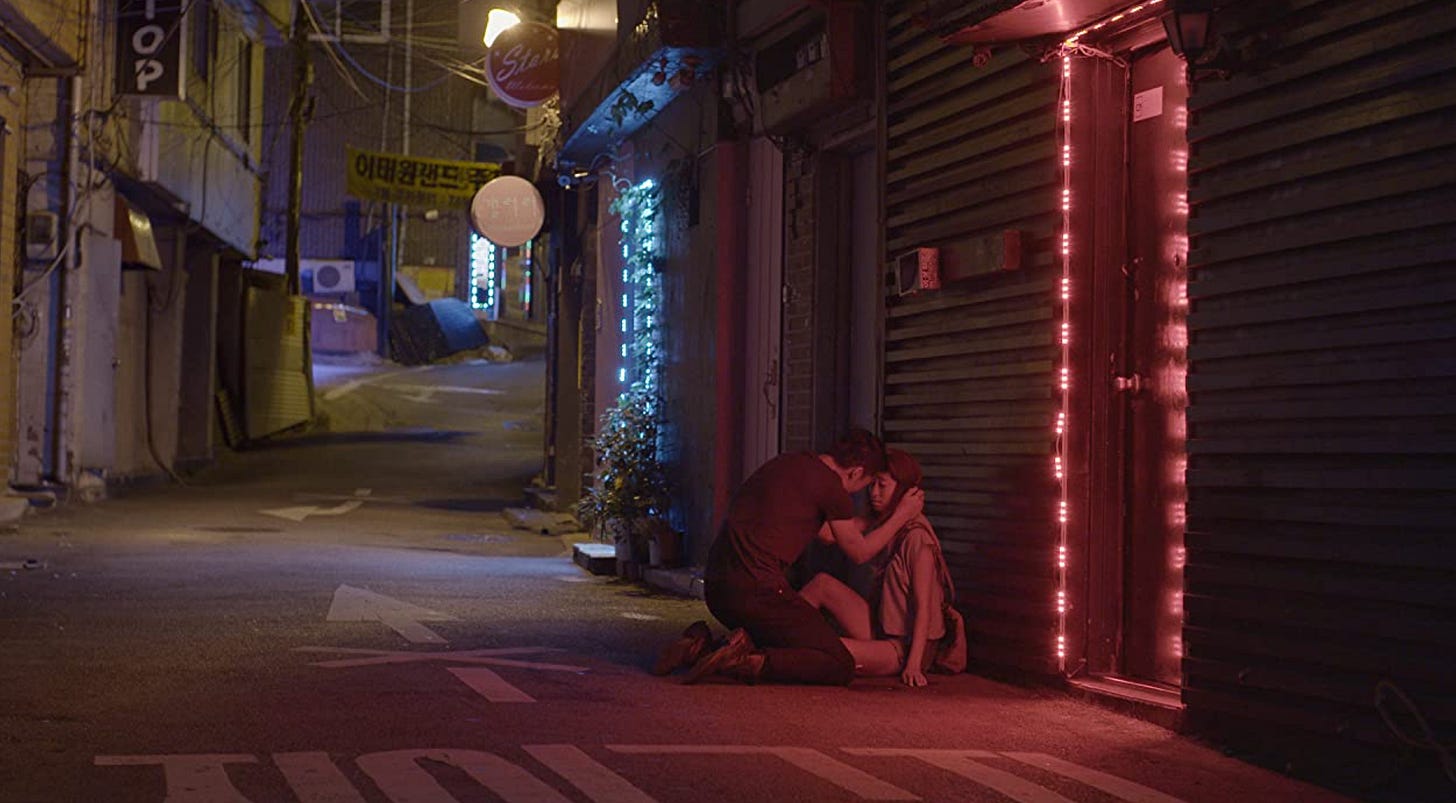Prostitution on US military bases, Christian values, and solid welfare benefits in Denmark. Or, do you know how international adoption became a thing? Also, my return with The Return.
Let’s begin on September 8, 1945, when US forces entered southern Korea upon the surrender of Japan. With the Korean War, US forces remained, and on these US military bases were prostitution camps (complete with STD checks and English and etiquette classes), supported by both US and Korean governments.
Unsurprising but unprepared for was the new and vulnerable population of multi-racial children. Somehow, Henry and Bertha Holt, an evangelical couple from rural Oregon, found out about this, and perhaps inspired by the adoption of Jewish children by Americans leading up to and after the Holocaust, secured “An Act for the Relief of Certain Korean War Orphans” from Congress in 1955.
After adopting eight of their own “Korean war orphans,” the Holts “pioneered” (their own words) the first international adoption agency. Through proxy adoptions (now illegal), the Holt International Children’s Services only asked 1, that applicants pay the cost of airfare and 2, that applicants be Christian. Their form letter seeking adoptive parents included the following request:
We would ask all of you who are Christians to pray to God that He will give us the wisdom and the strength and the power to deliver his little children from the cold and misery and darkness of Korea into the warmth and love of your homes.
I guess communism makes for better marketing than the reckless and often violent sexual acts of American troops.
The Holt International Children’s Services expanded their services to Europe by the late 1950s. Meanwhile in Scandinavian countries, welfare came to provide enough support for single mothers —> reducing the number of children up for adoption —> increasing demand for adoptees —> inspiring the adoption of Koreans. Many Scandinavian families adopted Korean children in the 1950s and 60s, and with it becoming normative, the trend simply continued. Kind of makes you wonder about the word of mouth conversations that continued this trend. Anyways, as of 2004, Koreans constitute half of all international adoptees in Denmark and make up the majority of the Korean population in Denmark.
Malene Choi, the director of The Return, was adopted from South Korea and raised in Denmark. While this debut film does not focus on the details of her personal story, it is of course, of the same world.
A good portion of the film takes place in a hostel, which means extra points from my nostalgia-loving self. I love the opening scenes where the hostel manager shows Karoline, the Danish Korean adoptee protagonist who’s arrived to find out more about her birth mother, how to add a name tag to your food for the fridge, the wifi password, where to store her stuff, and the public hangout space. Many conversations (including one about a visit to the Holt office in Seoul) take place on a couch in that space, particularly between Karoline and Thomas, another Danish Korean adoptee searching for his birth mother. Both Karoline and Thomas are the real names of the real humans, and while Thomas is an actor, Karoline is a non-actor. Like many of the films I like, this one borders truth and non truth, embracing authenticity but not requiring pure documentation.
The hostel is also real, and while not named in the film it is KoRoot, a small guesthouse in Seoul that is for adoptees only. In an interview, Choi shares:
I just knew that if we were going to KoRoot, the guesthouse, we would have a scene where we were having dinner together. I just asked Karoline and Thomas if they wanted to contribute with their own background stories, family background stories, and Karoline was quite open with it, that she’d been bullied, so that was quite not scripted. So it was like I would set up the scene, it says on the paper that we’d have dinner with some adoptees and they’d talk about being bullied for example, racism in their home countries…and the other real people, the other adoptees would follow, they would participate in the discussion, or not.
I would have shared Karoline’s words in this scene whether it was true or not. She says:
[My parents] couldn’t cope with the fact that I had problems with other kids, because they see me as their daughter. So they don’t understand why other people can’t see that I’m almost white! My mom’s like, “You don’t really look Korean.” I don’t think that she can really handle the truth.
These words have the backing of researcher Youngeun Koo in “We Deserve to Be Here":
Despite their adoptive parents’ claim that they are ‘like any other Danes,’ the apparent difference in Korean adoptees’ appearance, street-level racism, and whiteness in Danish national identity made them feel that ‘something was not quite right.’ The lived experiences of exclusion were a reminder of their differences, which the Korean adoptees did not learn to accept as part of them.
In a later scene, while feeding shrimp-flavored snacks to seagulls, Thomas adds (in Danish, translated):
And the thing I always thought hurt the most was the thing…that everyone somehow agreed on where I come from. That it was okay to say: “Go back to where you came from.” I think that’s the thing that always hurt the most. Because…I couldn’t do anything about it.
For the making of this film, Choi spoke with an estimated 200 Korean adoptees, and these stories feed in throughout the film in a very important way—obviously, no two Korean adoptees are alike. Choi’s intentionality seems to climax in this somber seaside conversation (in Danish, translated):
Karoline: It’s fun meeting other adopted people from other countries. Talking to then, having something in common with strangers.
Thomas: Yes. Yes, I think so too. But in some strange way…I think it’s…A lot of times I’ve noticed that…I’ve been almost lying about how much we have in common. Because I wanted us to have a lot in common.
Karoline: Why? What do you lie about?
Thomas: I say that that’s how I feel. That I know the feeling.
Do Karoline and Thomas find their birth mothers? I won’t spoil the plot this time. Instead, let me express my gratitude for this film. Nothing in The Return has anything to do with my own story, and yet it’s presented in a way that I understand it so well. Perhaps that’s the dangerous side of art. Or at least the power of art, to bring intimacy and honesty on so strong that one can “understand.” Or is that the power of truth?
Final note:
The number of international adoptions in the United States has dropped dramatically in recent years. In 2019 there were only 2,971 adoptions.
In truth and a lil art,
Elisa
The Return is available on MUBI. Be careful, or not, to not mistake it for The Return, the English title of a very good film from the prolific contemporary Russian director Andrey Zvyagintsev.





